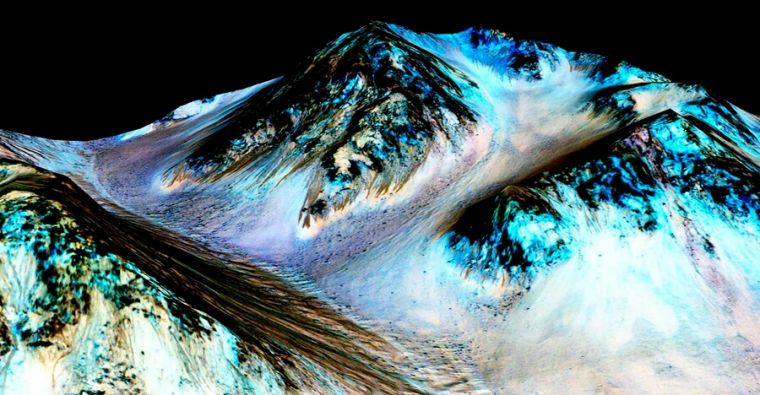Life possible on Mars, NASA says, after discovery of liquid, frozen water signs

Mars has long been considered a completely arid and desert-like planet, incapable of hosting human life.
But this perception of the Red Planet was shattered after the National Aeronautics and Space Administration (NASA) revealed on Monday that it has discovered signs of both liquid and frozen water on the surface of Mars.
This significant discovery was detailed in a study published in the journal Nature Geoscience, where it was explained how scientists identified waterlogged molecules taken from readings from NASA's Mars Reconnaissance Orbiter.
Jim Green, planetary science director at NASA, explained that this discovery indicates that Mars used to have bodies of water similar to those found on Earth.
"We now know Mars was once a planet very much like Earth with warm salty seas and fresh water lakes. But something has happened to Mars. It lost its water," Green was quoted by ABC News as saying at a media briefing, which was held on short notice.
NASA particularly found 100-meter-long dark streaks which appeared to be flowing downhill on Mars' surface. Space scientists believe that these streaks were formed by contemporary flowing water.
The water source has yet to be determined, although researchers believe that the water on Mars is briny.
"Something is hydrating these salts, and it appears to be these streaks that come and go with the seasons," Lujendra Ojha, a researcher from Georgia Tech who worked on the research paper, explained. "This means the water on Mars is briny, rather than pure. It makes sense because salts lower the freezing point of water."
How important are these findings? John Grunsfeld, NASA associate administrator, explained that the presence of water on Mars raises the possibility of life on the Red Planet, even just simple microbes.
"I think all of the scientific discoveries we're making on the surface of Mars...these observations are giving us a much better view that Mars has resources that are useful to future travels," Grunsfeld said.











